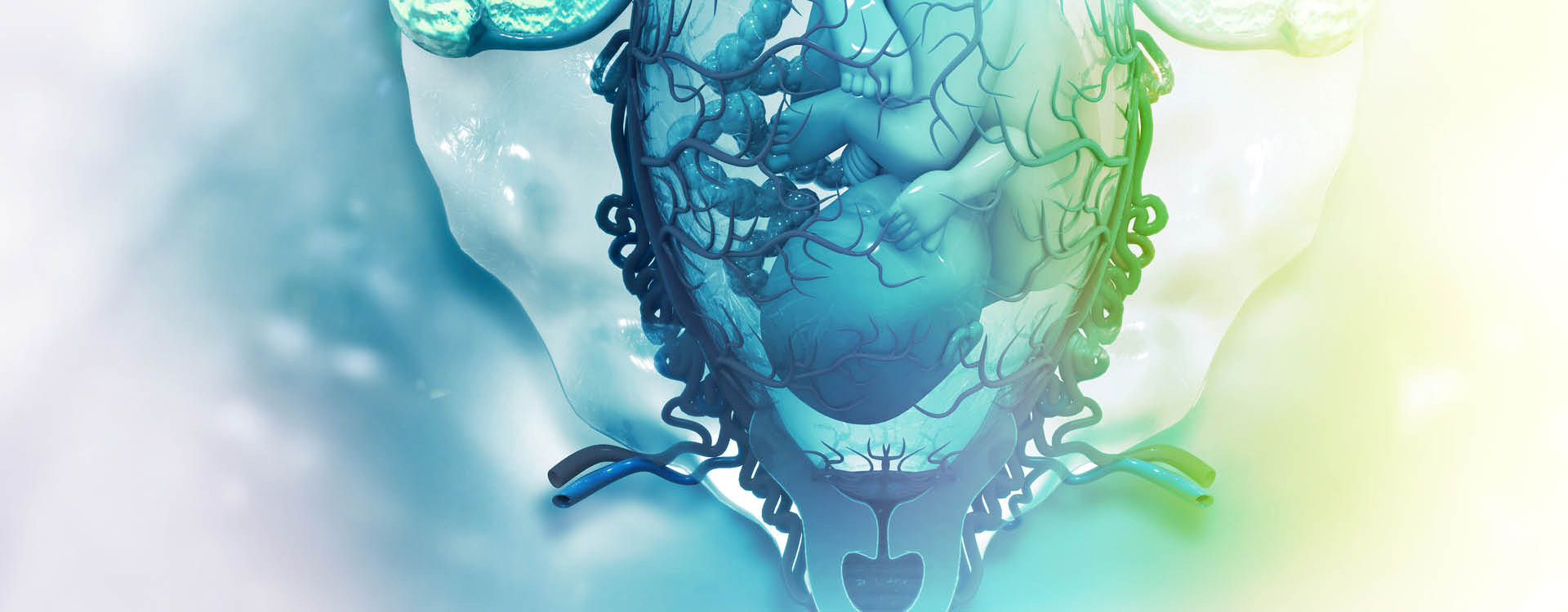If you’re reading this, you know the feeling: You’re trying to read something or just watch a little TV and there’s this one eyelid that starts twitching. You close your eyes, open them, think you’ve cleared it, and it starts again… and you don’t know how to make it stop.
While eye twitching is usually not a sign of something serious, it’s common in pregnancy and can be kind of maddening. Here’s how to make it stop, and what to do if it doesn’t abate.
What Is Eye Twitching?
Eyelid twitching (known as eyelid myokymia) is a spontaneous, gentle, rippling contraction of the orbicularis oculi muscle. It’s more commonly felt in the lower eyelid than the upper but in rare cases can occur in both upper and lower eyelids at the same time.
It can be periodic, lasting only a few seconds, or go on for hours. Even outside pregnancy, women are more likely to get it than men and cold weather increases the risk [*].
Can Pregnancy Cause Eye Twitching?
Yes, pregnant women often experience eye twitching and other sight disturbances for a number of reasons. While these issues typically resolve on their own or with rest and nutritional supplements, certain vision issues can indicate a more serious condition that needs medical diagnosis and treatment.
When Does Eye Twitching Start in Pregnancy?
Eye twitching can happen at any time in pregnancy. When it starts depends on the underlying trigger. For instance, when the cause is a buildup of fluid or pressure, you may see it later in pregnancy. When it arises from a rush of hormones or a nutritional deficit, you may see it earlier.
What Causes Eye Twitching During Pregnancy?
The etiology of eyelid myokymia is not well known. It is thought to be caused by a malfunction of certain nervous system cells called basal ganglia. Eye spasms or eye twitching usually occur in one eye or the other and can happen for reasons that are physiological or pathological [*].
Eye twitch can occur for the first time in pregnancy or exacerbate an eye issue you had before pregnancy. Here are the common triggers for eye twitching during pregnancy [*]:
Physiological Causes
Physiological causes of eye twitching are related to the fundamental changes your body is going through (hormonal fluctuations, increased blood flow, changes in the cornea) and may be precipitated by the following:
- Fatigue, stress, or anxiety: Changes in your sleep, diet, nausea, emotional anxiety, and the demands of the fetus can lead to fatigue and stress on your body even if you don’t feel emotionally stressed. These are the most common triggers of eye twitching in pregnancy.
- Vitamin or mineral deficiency: A lack of magnesium or potassium can often lead to muscle twitching. If your hands or feet feel a little crampy as well, you may be short on something your body needs. Magnesium has been shown to alleviate muscle symptoms like these and also lead to fewer pregnancy complications overall [*].
- Dry eyes: Hormonal changes and increased blood flow in pregnancy can cause dry eyes, and this can lead to eye twitching.
- Medications: Medications like topiramate (for migraines), clozapine (antipsychotic), gold salts (for rheumatoid arthritis), flunarizine (vertigo, migraine) and medications used to treat Parkinson’s disease may trigger eyelid myokymia but it’s uncommon [*].
- Eye strain: Too much screen time and not blinking enough can exacerbate dry eyes and eyelid twitching.
- Caffeine intake, nicotine, and alcohol: All of these may trigger eyelid twitching, and we probably don’t have to tell you what a bad idea smoking and alcohol are during pregnancy [*].
Pathological Causes
When eye twitching is considered pathological, it means it is a symptom of an underlying disease or condition that should be diagnosed and managed by your care team.
In non-pregnant persons, eye twitching may point to a brain or nervous system disorder such as multiple sclerosis, an autoimmune disease, Tourette syndrome, or brainstem glioma but this is rare [*][*][*].
When arising in pregnancy, your care term may be on the alert for disorders such as these:
- Hypertensive disorders: Pregnant women who develop gestational diabetes, preeclampsia or eclampsia may present eye symptoms such as twitching, blurred vision, reduced color perception, and restriction in field of vision [*].
- Essential Blepharospasm: Essential Blepharospasm or Blepharitis is an involuntary closing of the eyelids, almost like one eye is squinting. Doctors don’t know exactly what causes it but surmise it arises from a combination of factors both genetic, epigenetic, and environmental. People with blepharitis may also experience psychiatric, mild cognitive, and sensory disturbances [*][*].
- Facial Myokymia: Rarely, eyelid twitching may be a precursor to a larger facial myokymia that may be associated with multiple sclerosis and brain stem tumors [*]. Hemifacial Spasm, Meige Syndrome, Spastic-paretic facial contracture, and Bell’s Palsy may also present initially with eye twitching [*][*][*][*].
Can Preeclampsia Cause Eye Twitching?
Yes, eye twitching can be a symptom of preeclampsia and hypertensive disorders of pregnancy. If you have eye twitching and also have blurred vision, floaters, bad headaches, or severe abdominal pain, call your doctor and get to an urgent care provider as soon as possible.
How to Treat Eye Twitching While Pregnant
Prompt recognition and management of eye issues like eye twitching, eye dryness, and vision changes in pregnancy can help avoid complications that could threaten your sight or be symptomatic of a pregnancy complication that could negatively affect your baby [*].
Here are a few things you can do at home or in tandem with your care team’s recommendations to get rid of this annoying twitching.
Find Time to Unwind
We know it can be hard if you’re working or managing other children to find time for yourself, so make the time you have count.
Invest in a little footbath if that soothes you, or a lavender eye pillow that you can pop in the freezer and apply to your beleaguered eyes (It may also help you sleep!). If time allows, get a massage or spend some time floating in a pool to stimulate blood flow and encourage lymphatic drainage. A warm bath or a cool compress on your eyes may feel soothing as well.
Adjust Your Diet
Vitamins and minerals like magnesium, calcium, and potassium help your body control muscle contractions and nerve impulses. Talk to your care team about supplementing your diet with magnesium-rich foods or a magnesium malate supplement.
The best dietary source of magnesium is roasted pumpkin seeds (pepitas), with a whopping 156mg of magnesium in a 1-ounce serving. Green leafy vegetables, chia seeds, nuts like almonds and peanuts, boiled spinach, soymilk, black beans, peanut butter, bananas, and grains like brown rice are also good sources, too. But note that only about 30-40% of dietary magnesium is absorbed by the body [*][*][*].
If you opt for a supplement, ask your doctor about magnesium malate, a supplement combining magnesium and malic acid, a compound typically found in fruits that gives them a tart taste. It is more bioavailable than other magnesium supplements and may be easier on your stomach [*].
If you drink coffee, tea, or caffeinated sodas, try to reduce your caffeine intake or omit it altogether to see if your symptoms abate.
Reduce Eye Strain
Give yourself a one-minute break from the computer every 20 minutes and use an eye drop your doctor approves of for dry eyes.
Seek Medical Treatment
For persistent twitching beyond pregnancy or conditions like blepharitis, your doctor may recommend a Botox injection.
Is Eye Twitching a Sign of Pregnancy?
Not necessarily. Many women have no pregnancy symptoms early on and others may experience breast tenderness, fatigue, and mild cramping very early in pregnancy [*]. There’s no research to support the notion that eye twitching is a signal you’re pregnant.
Other Common Eye Issues During Pregnancy
There are a number of other eye issues that can occur with pregnancy that may require evaluation. These include [*]:
Eye Spasms
If your eye closes completely with each twitch, it could be a symptom of hemifacial spasm. This should be evaluated by your doctor.
Eye Floaters
High blood pressure and elevated glucose levels in pregnancy can cause tiny specks of vitreous gel to float in and out of your vision. It may be normal but can also be a sign of preeclampsia so be sure to mention it to your care team [*].
Dry or Itchy Eyes
Changes to the cornea during pregnancy can lead to increased sensitivity and dry eyes, which may get worse as the pregnancy progresses [*]. Do your best to stay hydrated and ask your doctor if eye drops are okay to use. If you have allergies, try to stay away from triggers.
Red Eyes
Red eyes may be the sign of an infection such as pink eye (conjunctivitis), caused in part by eye dryness. It is uncomfortable but easily treatable in pregnancy.
Blurred Vision
There are a number of problems that blurred vision may indicate. Hormone changes can cause uveitis, a swelling of middle eye tissue, which results in blurred vision. Pregnant women who develop gestational diabetes are at risk for diabetic retinopathy, a serious problem whose symptoms include blurred vision, changes in perception of color, and restriction in field of vision [*].
Contact Lens intolerance
Water retention during pregnancy can lead to thickening of the cornea in the second and third trimester of pregnancy, making eyes dry and contact lenses intolerable. This can also cause blurred vision [*].
When to See a Doctor
Most often, eyelid myokymia resolves within a few days or weeks with rest, supplements, or an avoidance of what may have triggered it (stress, caffeine, medication, etc.). If it doesn’t resolve or you experience any of the following symptoms, it’s time to see a specialist [*]:
- Twitching begins in other parts of your face.
- You have trouble opening the twitching eye.
- The eyelid closes completely with each twitch.
- The eyelid is red, swollen, or drooping.
The Bottom Line
Eyelid twitching in pregnancy is common. It’s usually nothing to worry about and can typically be treated with rest and mineral supplements.
If it occurs in tandem with other symptoms or doesn’t go away in a few weeks with treatment at home, talk to your doctor about diagnosis and management.
About MiracleCord
MiracleCord offers the industry’s most advanced umbilical cord blood stem cell banking at affordable prices. Stem cell treatments are used to treat more than 80 life-threatening blood disorders with many thousands more applications in trials.
Discover why MiracleCord was awarded Best U.S. Cord Blood Bank by Global Health & Pharma, and download our Free Info Kit to discover what makes us different.
DISCLAIMER: THE INFORMATION ON THIS WEBSITE IS NOT INTENDED TO BE USED AS MEDICAL ADVICE.The materials and information contained on the MiracleCord website is provided for educational and informational purposes only, and is not intended to, and does not constitute, medical or other health advice or diagnosis, and should not be used as such. You should not use this information to diagnose or treat a health problem or disease. If you are seeking personal medical advice, you should consult with a licensed physician. Always consult with a qualified health care provider regarding a medical condition.




